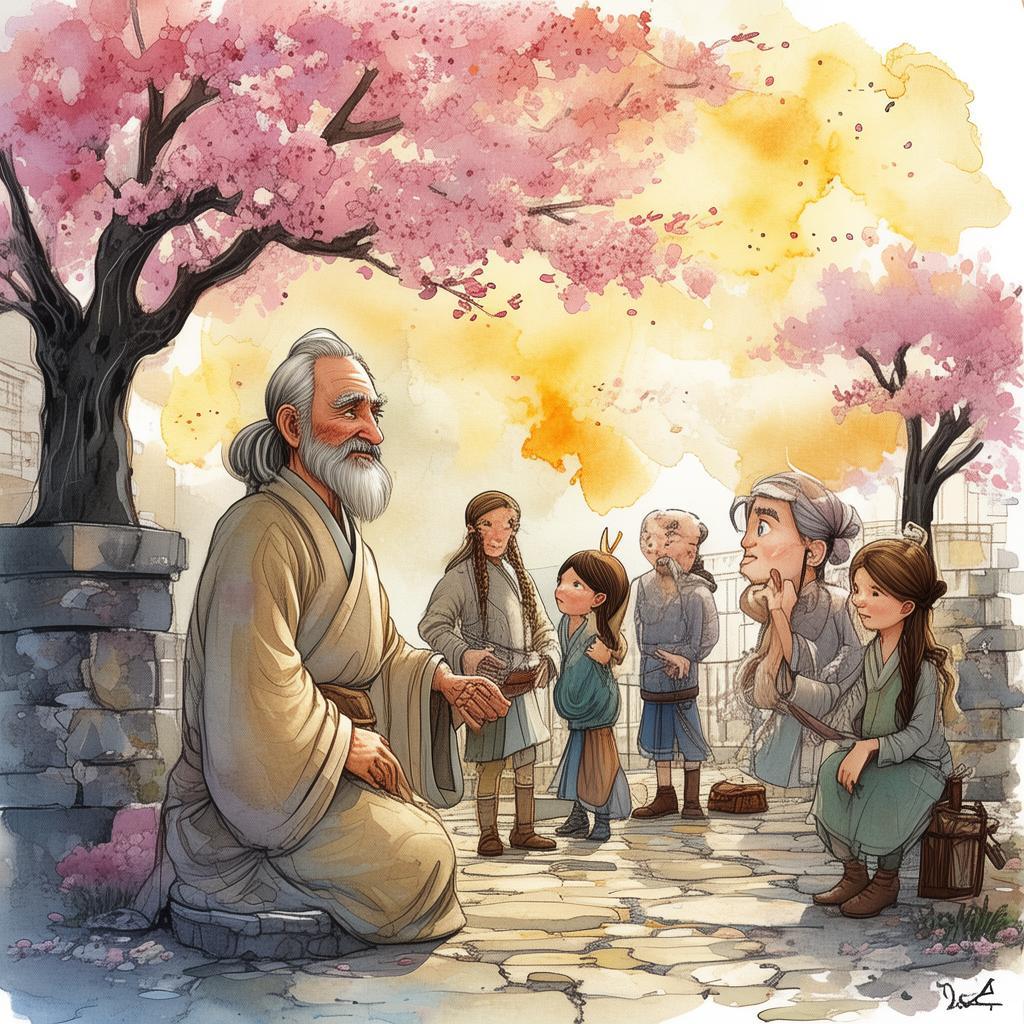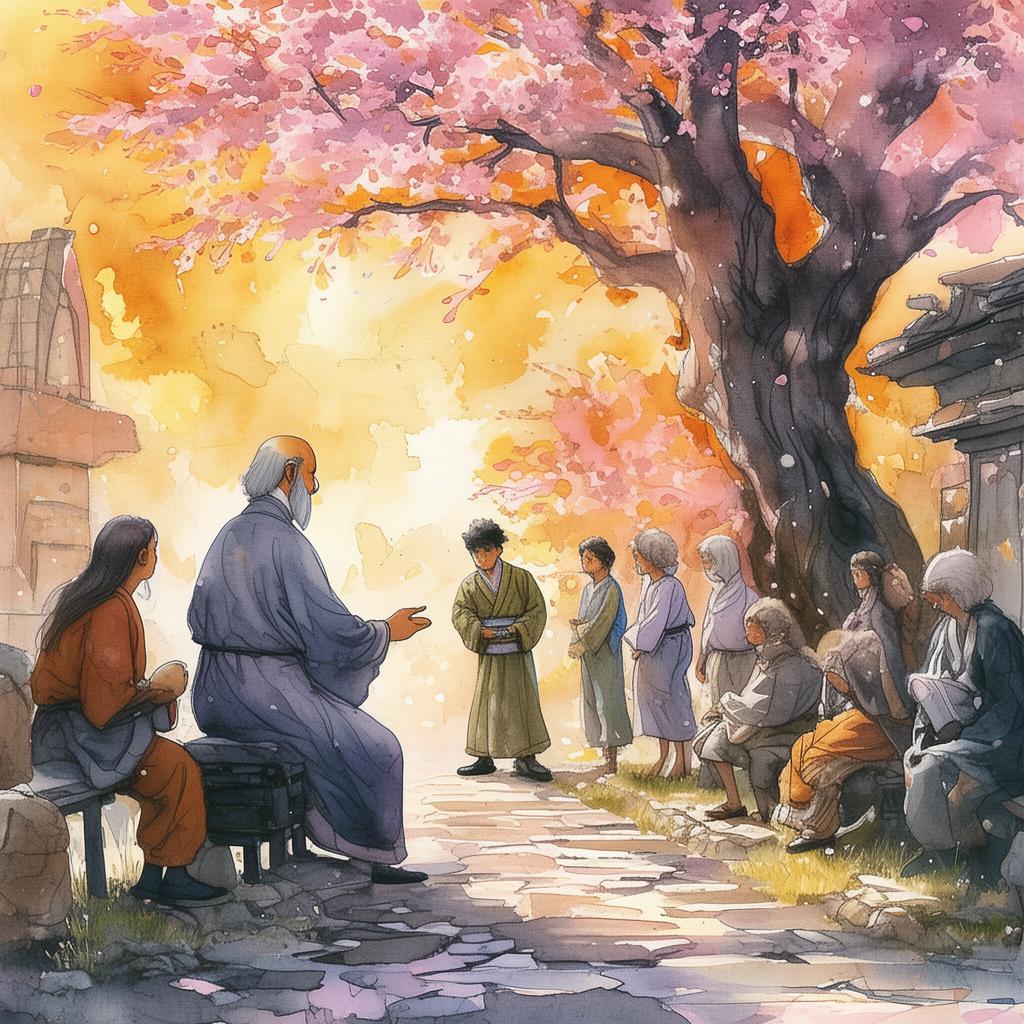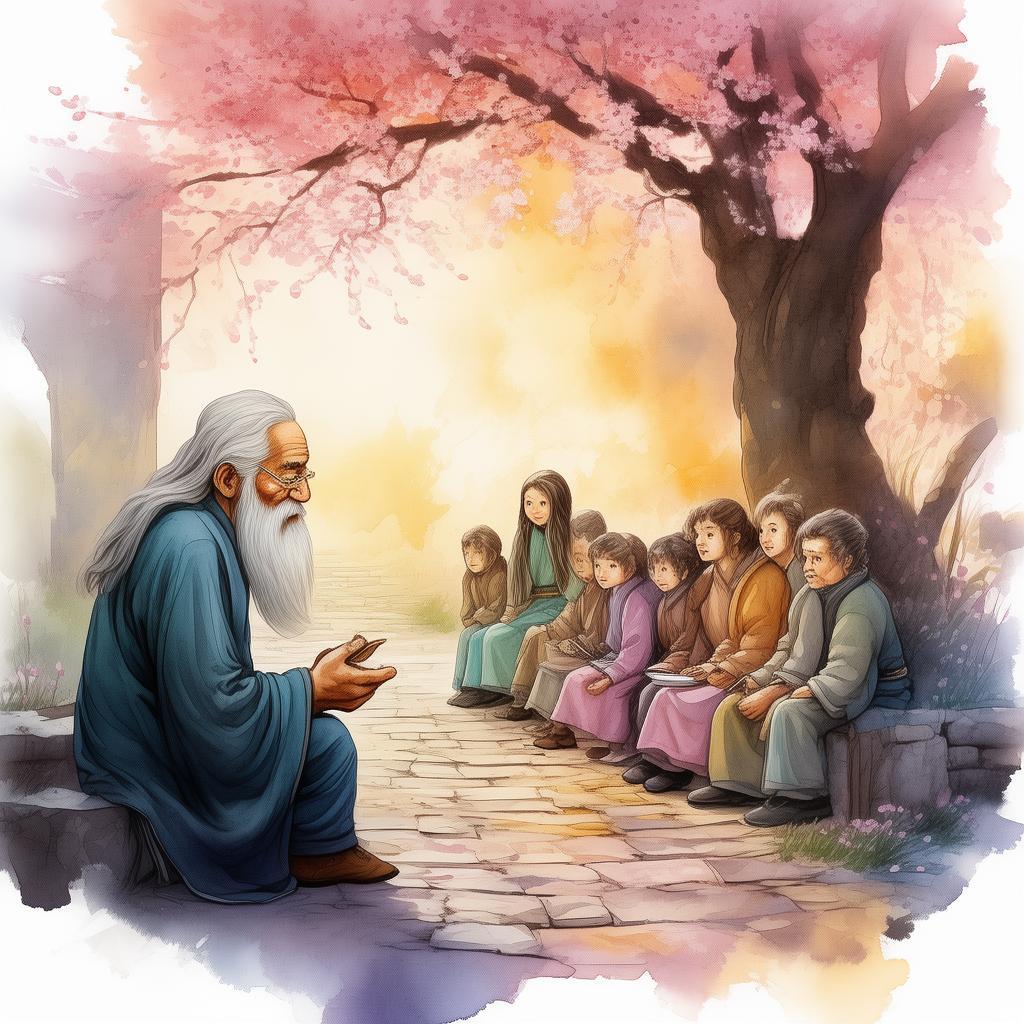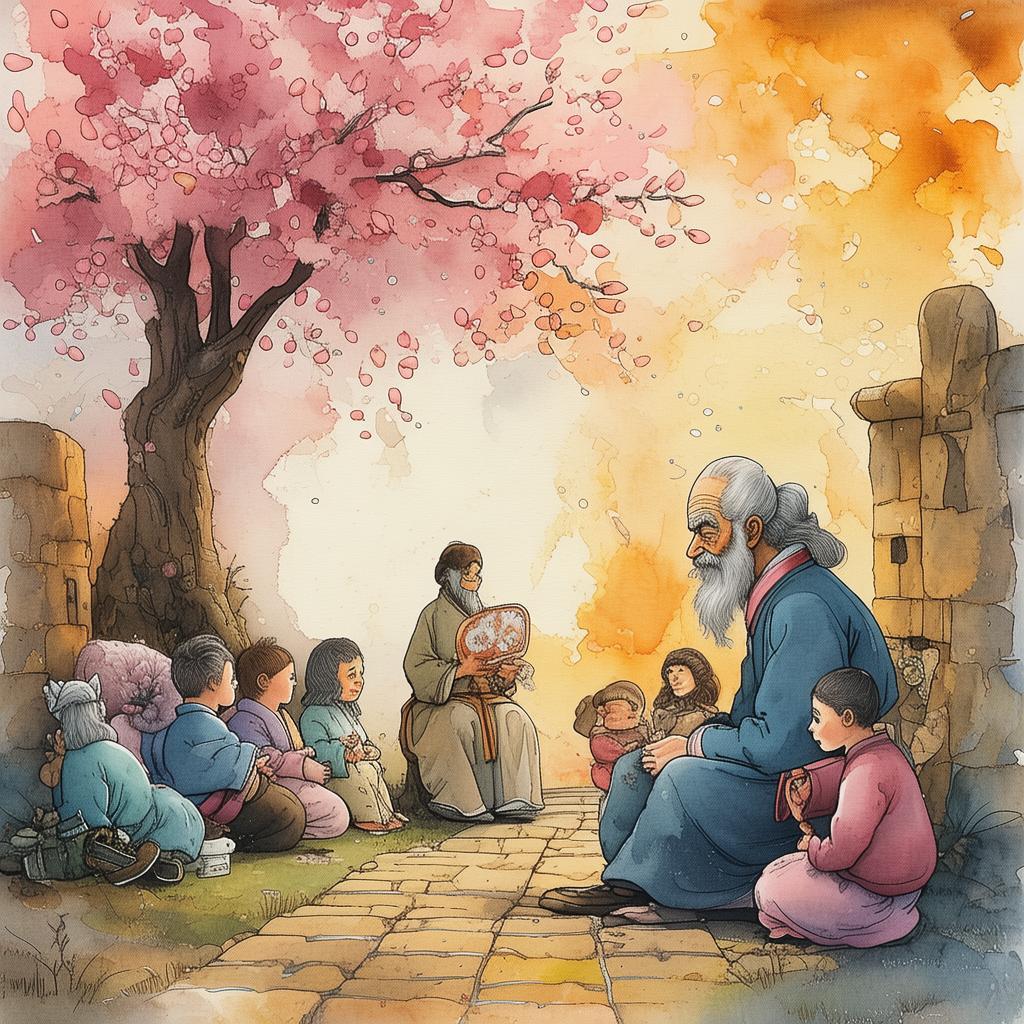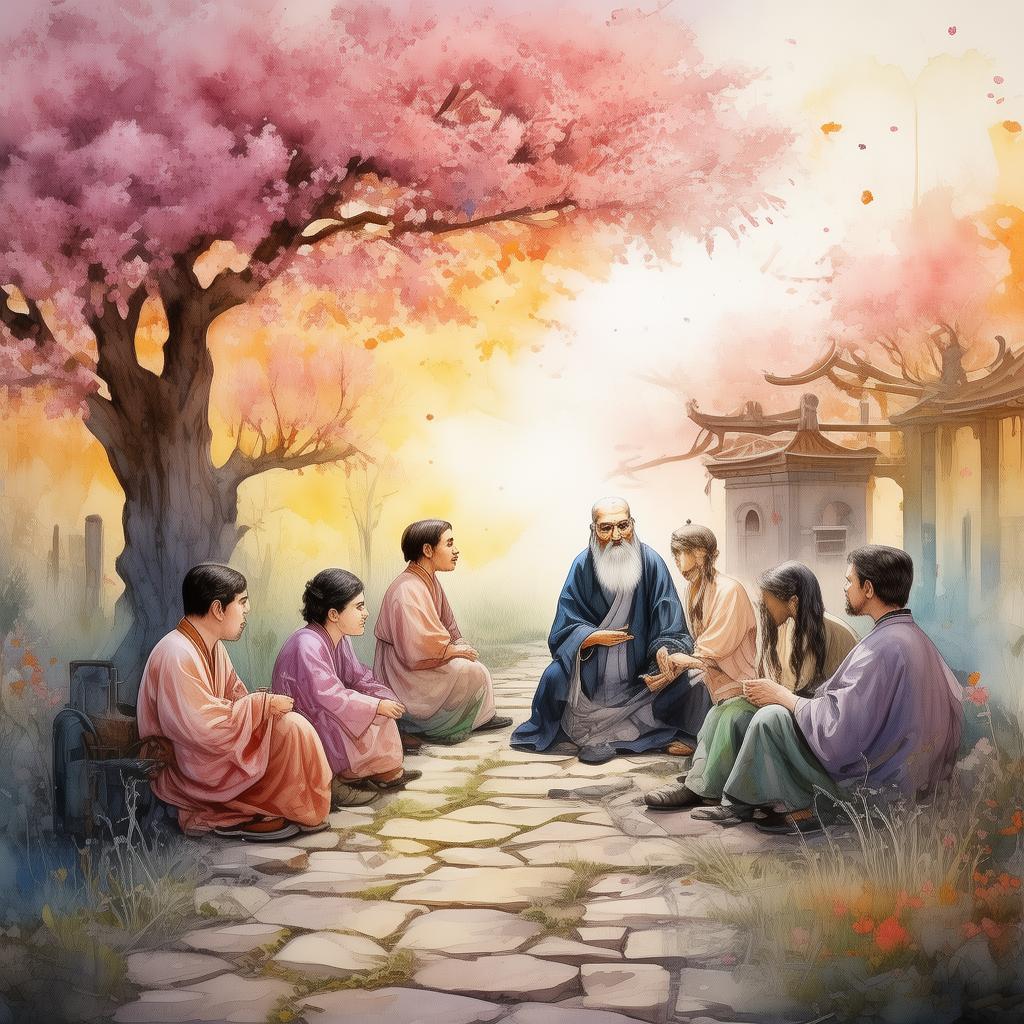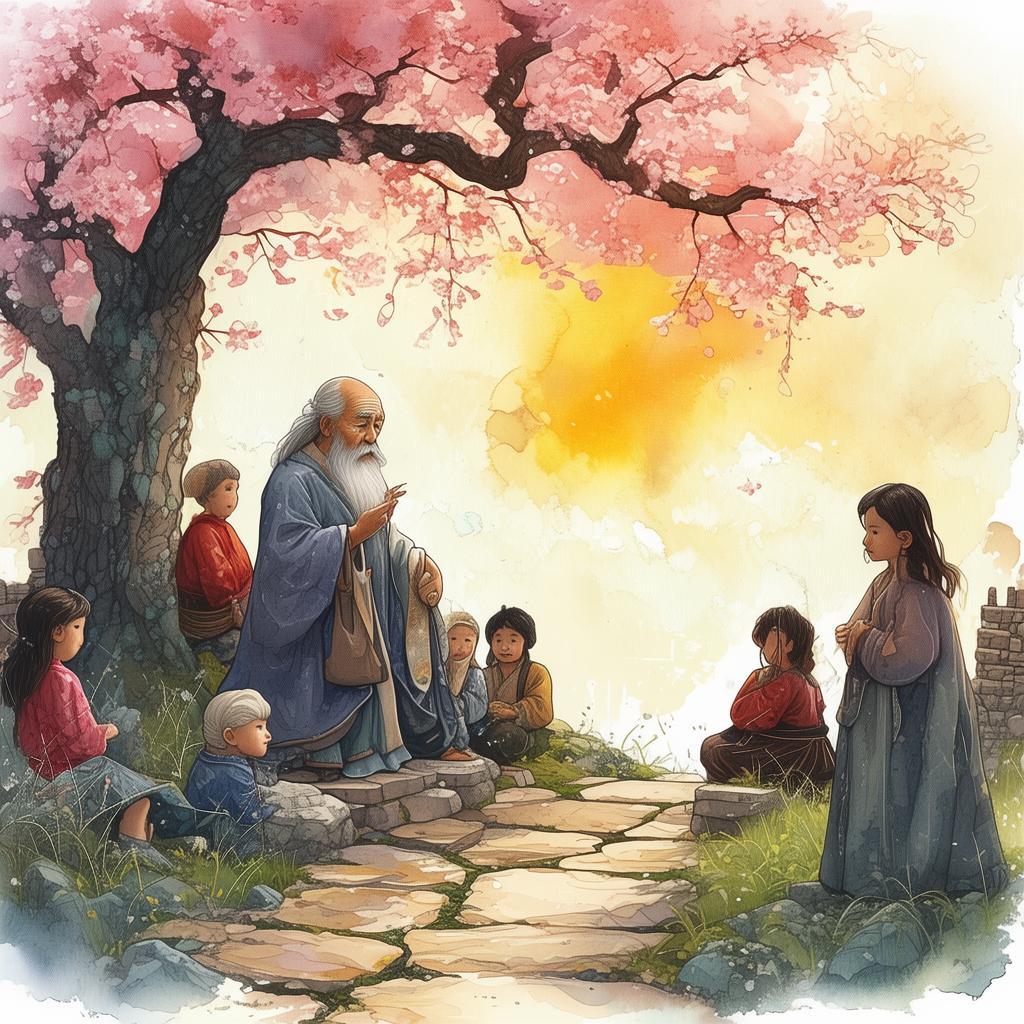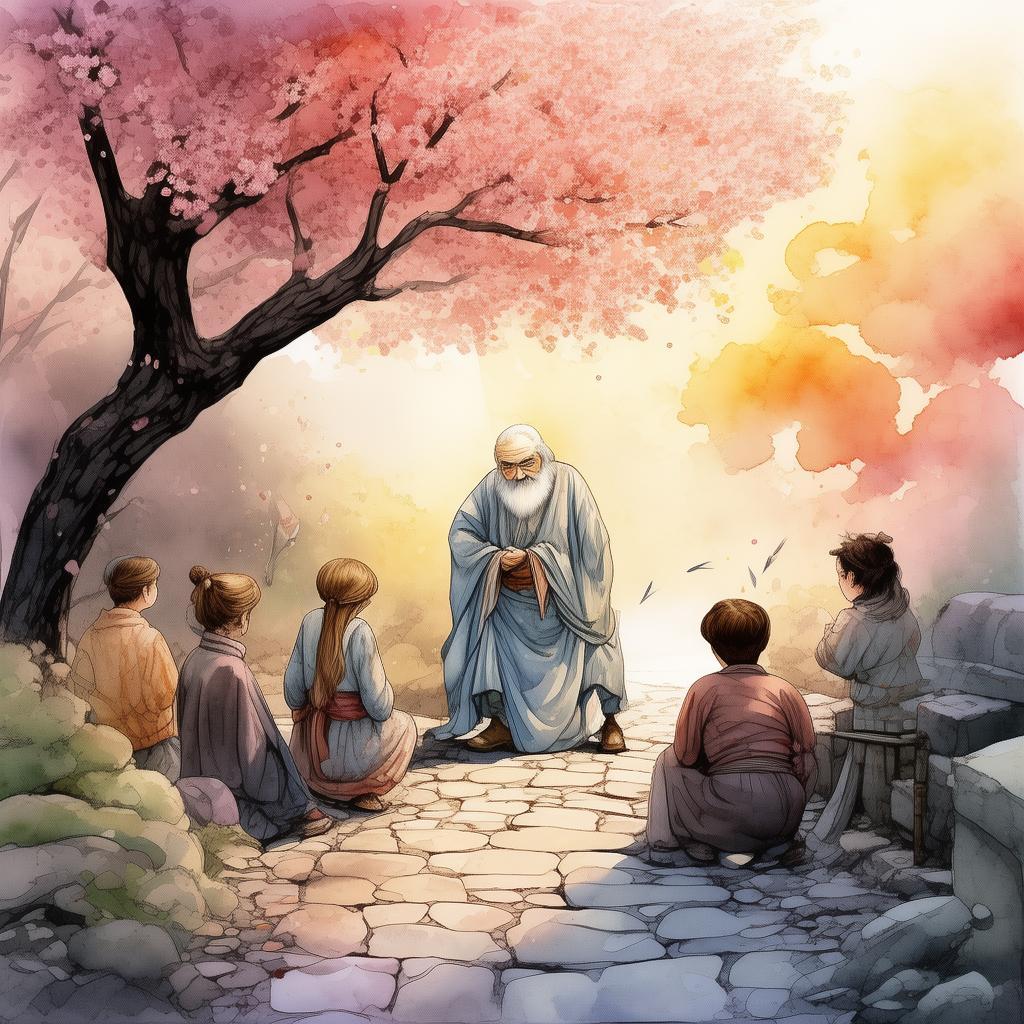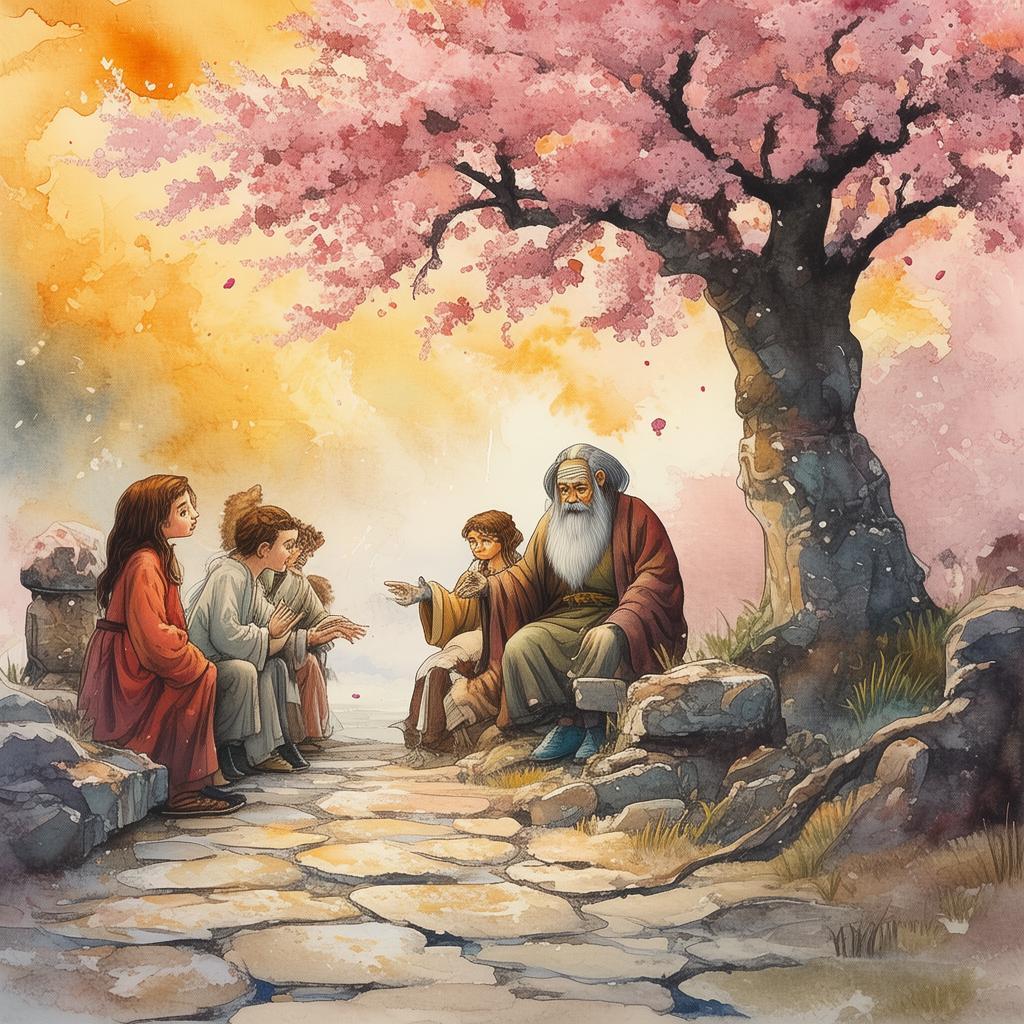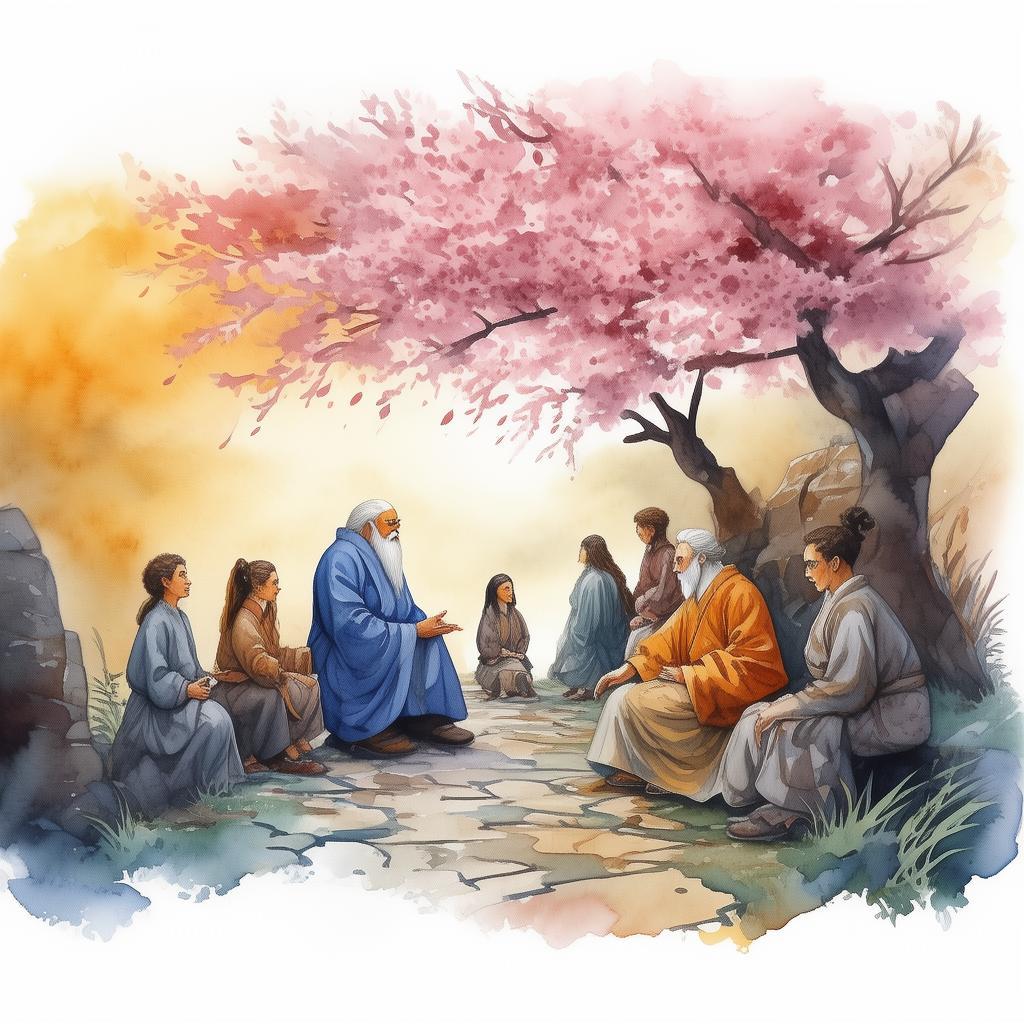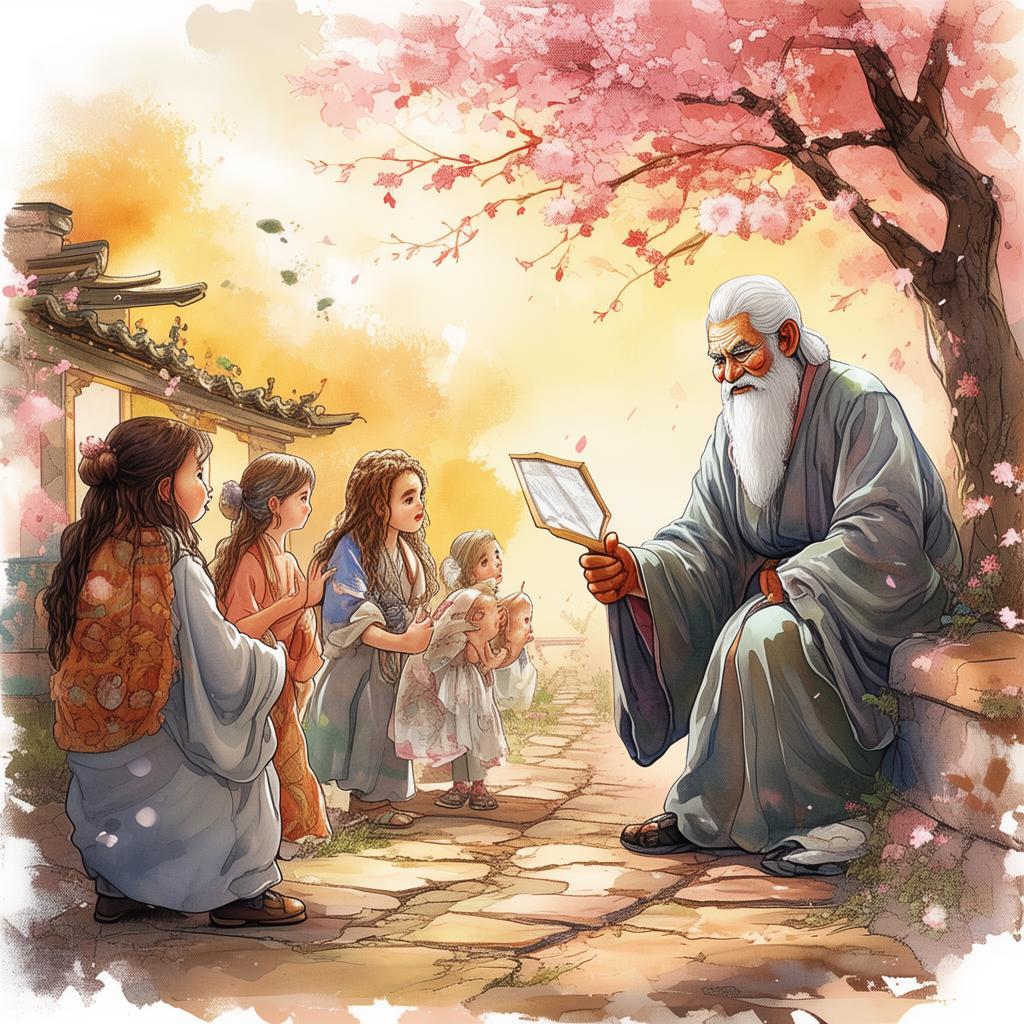The Lament of the Lost Lyre: A Tale of Echoing Shadows
In the heart of the ancient, misty mountains, there lay a village known only to a few, whispered about by the winds that danced through the pines. It was a place where time seemed to stand still, and where the air was thick with the echoes of forgotten tales. Among the villagers was a young lyre player named Ming, whose fingers danced with a life of their own over the strings of his instrument, weaving melodies that could stir the soul.
One fateful evening, as the moon hung low and the stars shone brightly, Ming wandered beyond the village. His lyre sang a tune of longing, its strings echoing the dreams that danced in his mind. He stumbled upon a hidden cave, its entrance veiled by a shroud of ivy and whispered by the rustling leaves of ancient trees. Drawn by the haunting melody that seemed to call to him, Ming stepped inside, the light of the moon casting eerie shadows on the walls.
As he ventured deeper, he stumbled upon a chest half-buried in the earth. With a mixture of excitement and trepidation, he pried it open. Inside lay a lyre, unlike any he had ever seen. Its wood was dark and aged, its strings woven from a fabric that shimmered like moonlight. Ming's fingers trembled as he lifted it, and the lyre began to sing, a melody that resonated with the very essence of his being.
The song was ancient, filled with echoes of a past long forgotten. Ming played, and as the music filled the cave, it seemed to weave a spell. The walls began to glow, revealing intricate carvings of a time when the lyre was not just an instrument but a source of ancient wisdom and power. The carvings spoke of a time when the lyre was a gift from the gods, a vessel of the fated past, and its music could bind souls to the strings of destiny.
As Ming played, he felt a presence, a spirit that seemed to emerge from the very strings of the lyre. It was the lyre's guardian, a being of ancient wisdom, and it spoke to Ming in a voice that echoed through the cave, "You have been chosen, Ming. The lyre is yours to wield, but it comes with a price. You must unravel the tangled strings of a fated past, for within its music lies the key to a great mystery."
Ming was hesitant at first, but the music of the lyre called to him, a siren song that promised to reveal the truth of his existence. He accepted the lyre and its burden, and the guardian faded into the shadows, leaving Ming alone with the music and the carvings.
The village of the lost lyre player became a place of legend, for Ming's melodies were said to carry the whispers of the gods and the echoes of a fated past. He traveled far and wide, playing in the courts of kings and the huts of the poor, his lyre a beacon of hope and a reminder of the power of music to heal and to bind.
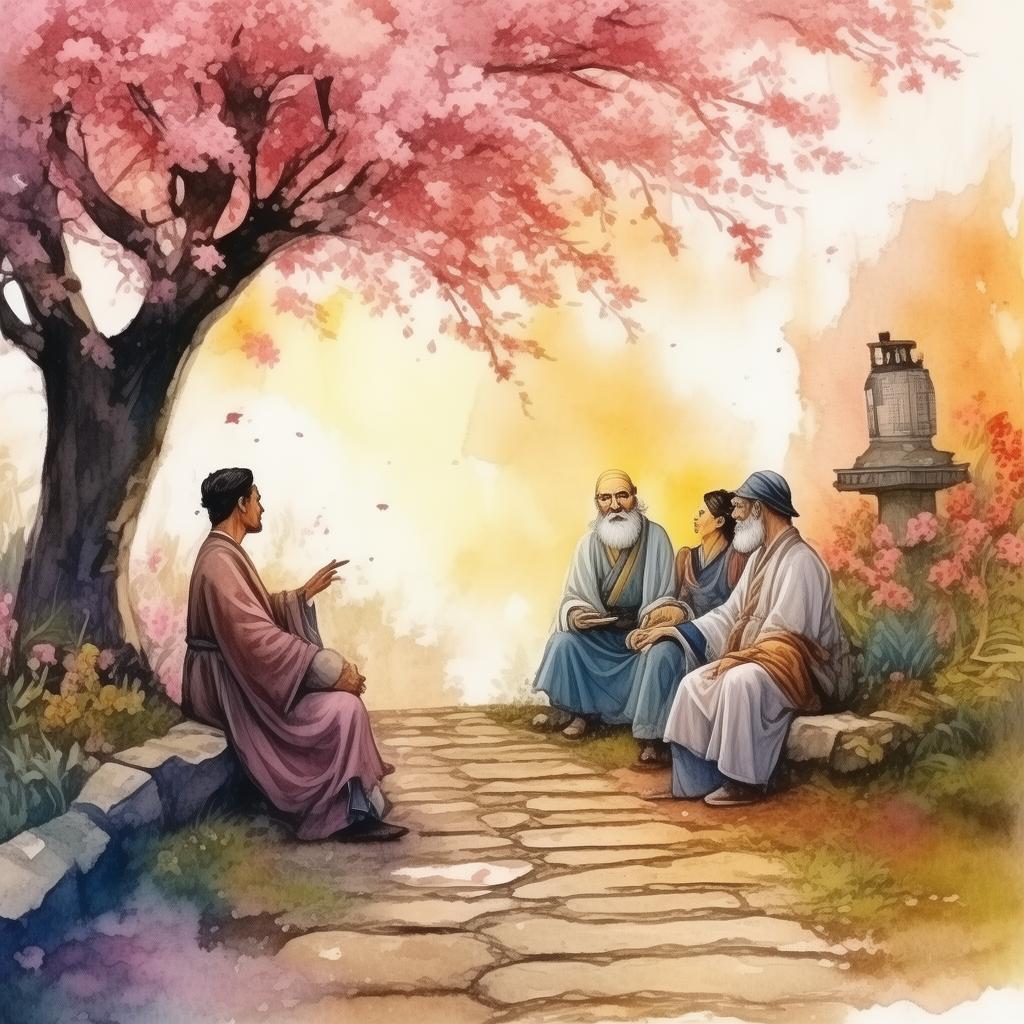
But the price of the lyre was great, for with each string that sang, Ming felt a piece of his own past unraveling, revealing secrets and truths that he had long forgotten. He discovered that he was the descendant of a long line of lyre players, each bound to the instrument by a chain of destiny that spanned centuries.
As Ming journeyed further, he encountered others who were also bound to the lyre, each with their own tale of fated pasts and tangled strings. They were musicians, warriors, and scholars, all bound by the same melody, all seeking to understand the power that resided within the instrument.
In his travels, Ming faced trials and tribulations, but he always returned to the lyre, to the music that called to him. He learned that the lyre's power was not just in its ability to create beautiful sounds, but in its ability to heal wounds both physical and spiritual. The music could mend broken hearts and soothe the tormented souls of the lost.
One day, Ming reached a place where the mountains kissed the sky, and the earth was rich with the essence of ancient magic. Here, he found a temple, hidden from the eyes of the world, its walls adorned with the same carvings that he had seen in the cave. Inside the temple, he found a woman, her eyes filled with the same longing as his own.
The woman introduced herself as Yini, the last guardian of the lyre's true power. She explained that the lyre was a vessel of ancient wisdom, a key to a past that was intertwined with the future. Ming had been chosen to play the lyre, to weave the melodies of the past with the music of the present, to create a tapestry of hope and healing.
Together, Ming and Yini began to play the lyre, their music echoing through the temple, resonating with the very essence of creation. The music was powerful, filling the temple with light and sound, and as they played, they felt the weight of their fated pasts lifting, their tangled strings of destiny untangling.
The story of Ming and the lost lyre spread far and wide, a tale of love, betrayal, and the eternal power of music. Ming became a legend, his music a beacon of hope, a reminder that even in the darkest of times, the light of the past could shine brightly, illuminating the path to the future.
The lyre continued to sing, its strings echoing the fated past, but now with a new melody, a melody of hope and healing. Ming and Yini played on, their music a testament to the power of love and the enduring beauty of the soul.
✨ Original Statement ✨
All articles published on this website (including but not limited to text, images, videos, and other content) are original or authorized for reposting and are protected by relevant laws. Without the explicit written permission of this website, no individual or organization may copy, modify, repost, or use the content for commercial purposes.
If you need to quote or cooperate, please contact this site for authorization. We reserve the right to pursue legal responsibility for any unauthorized use.
Hereby declared.
